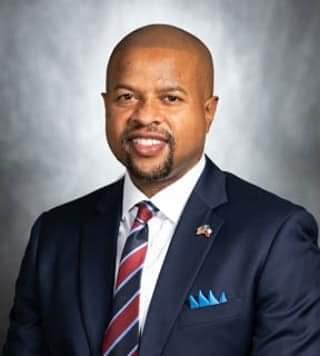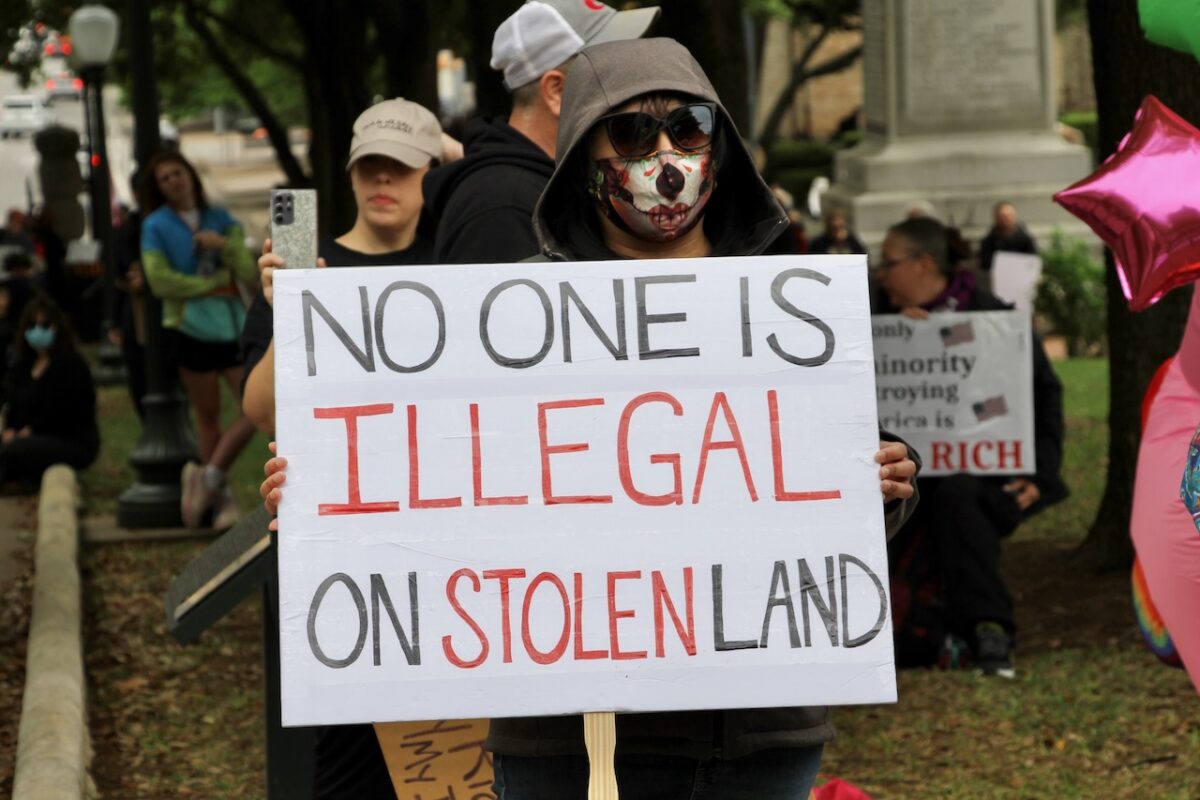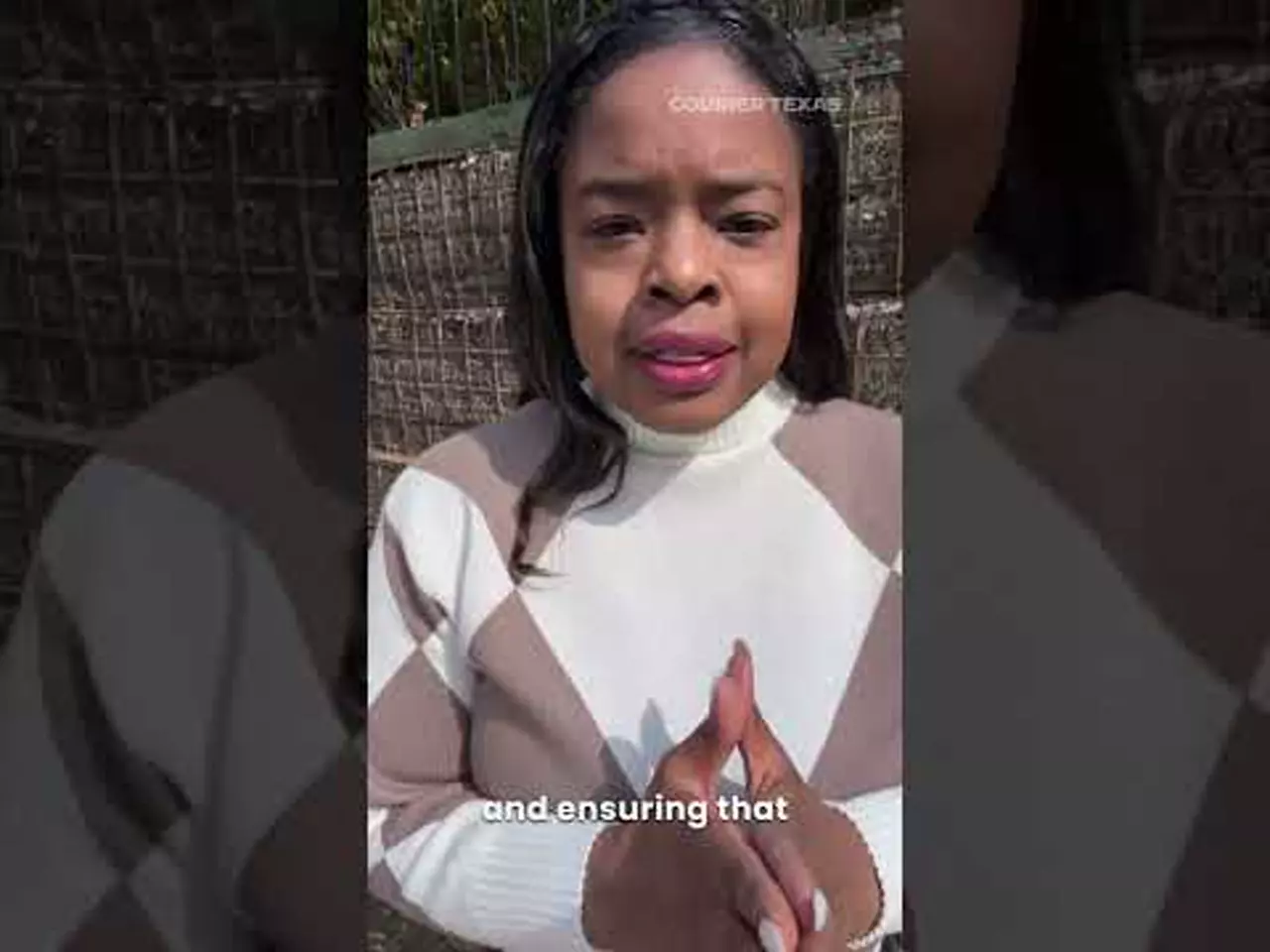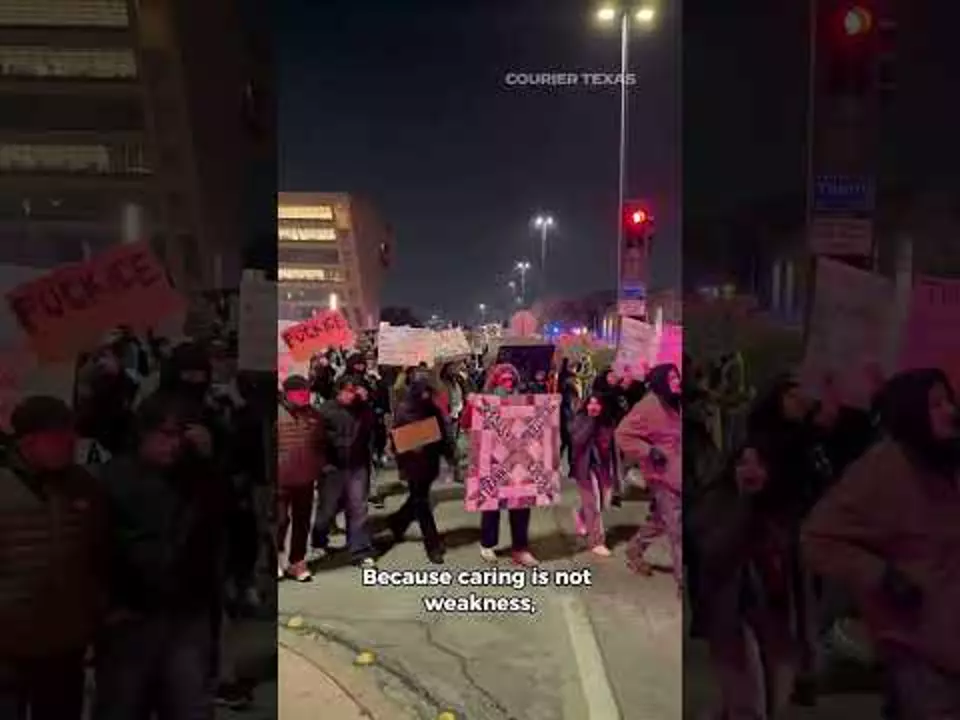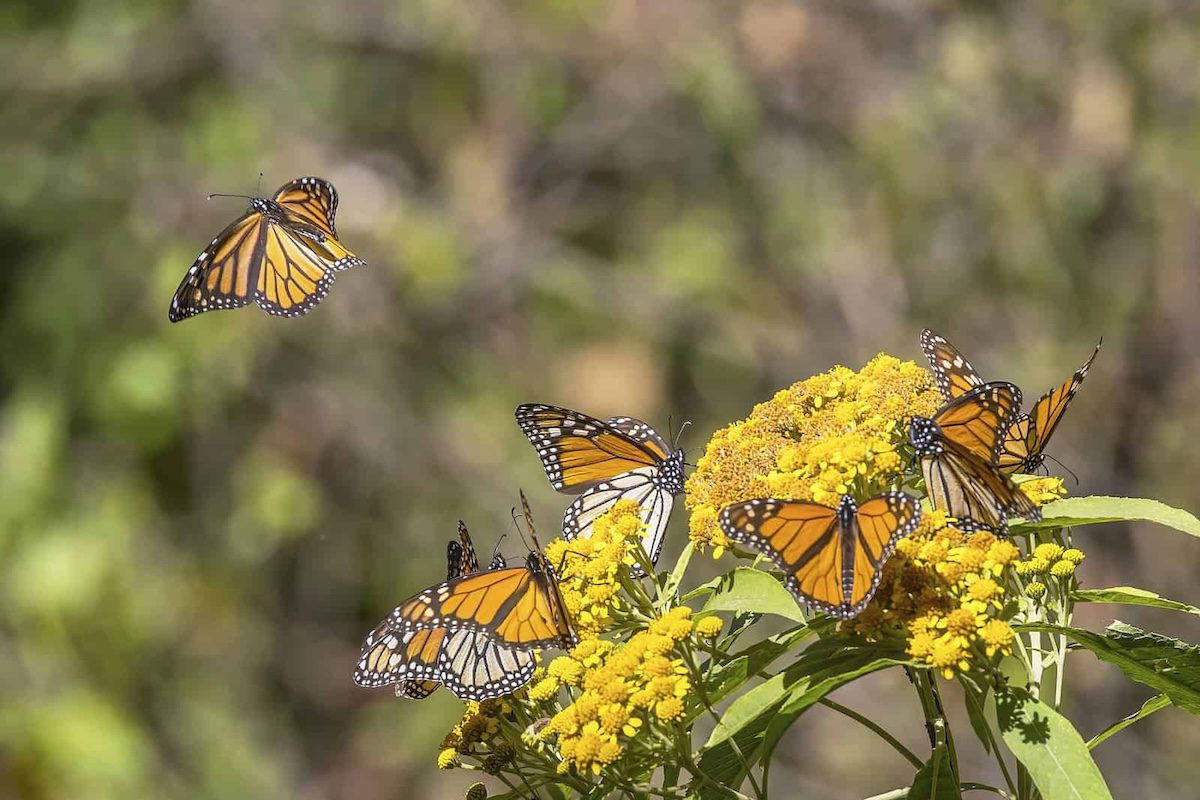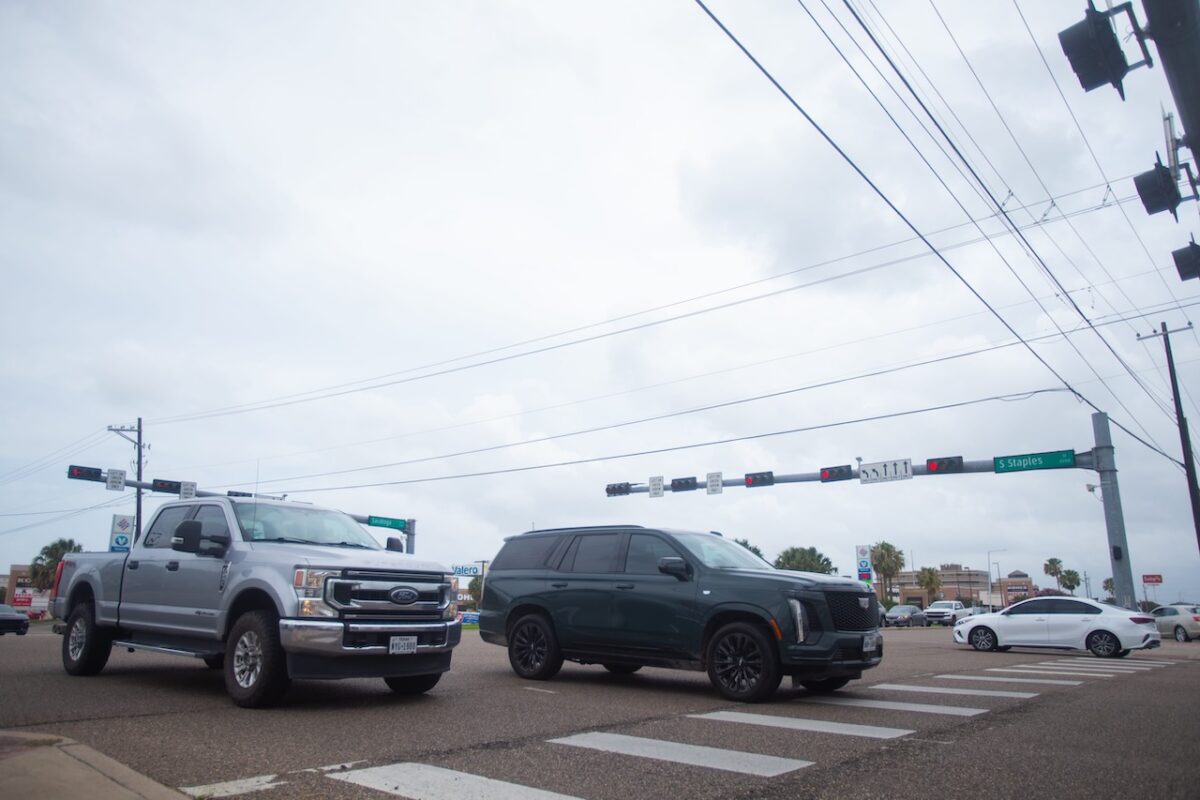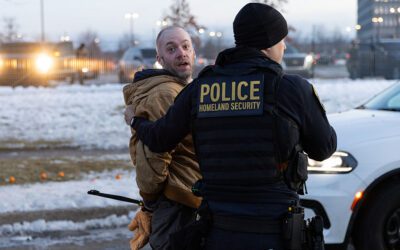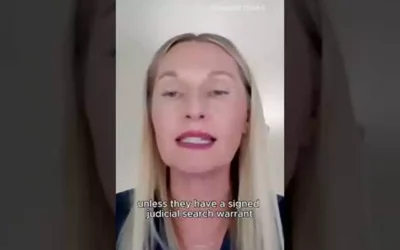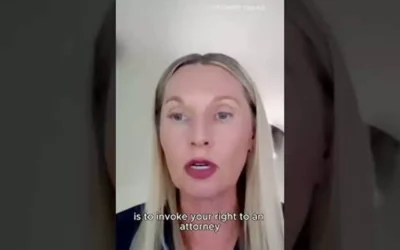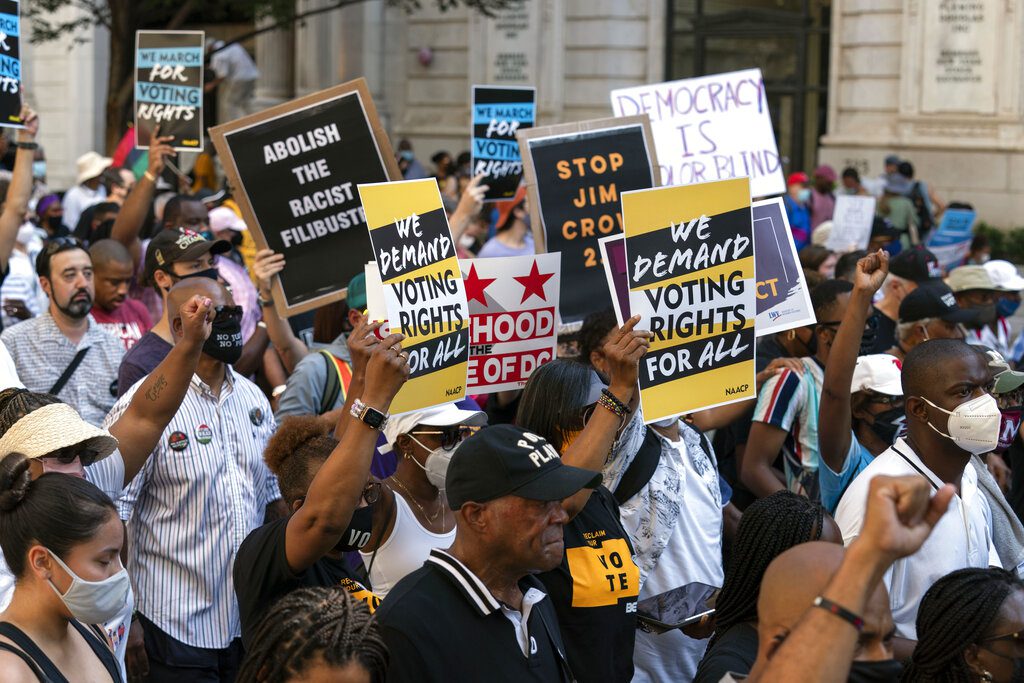
Demonstrators hold signs during a march for voting rights, marking the 58th anniversary of the March on Washington, Saturday, Aug. 28, 2021, in Washington. Hundreds of thousands of voting rights advocates rallied across the country Saturday to call for sweeping protections against a further erosion of the Voting Rights Act of 1965. (AP Photo/Jose Luis Magana)
Sixty years ago, the Voting Rights Act of 1965 was signed into law—an historic victory won by the blood, sweat, and sacrifice of Black Americans, who refused to accept second-class citizenship. They faced dogs, batons, fire hoses, and fists. It wasn’t because they broke the law but because they dared to demand a voice.
They marched from Selma to Montgomery. They were beaten on the Edmund Pettus Bridge. They bled in the streets of the Jim Crow South so we could claim the right to cast a ballot without fear, without intimidation, and without suppression.
Now, 60 years later, I’m here to tell you we are still in that fight.
Today, it looks different. It’s not billy clubs and German shepherds. It’s gerrymandered maps, closed polling places, purged voter rolls, attacks on vote-by-mail, and manufactured narratives of voter fraud used as excuses to chip away at the very foundation of our democracy.
That’s why I broke quorum in the Texas House, and I’d do it again. I didn’t come to the Capitol to play politics. I came to do what the late Congressman John Lewis, a civil rights legend, taught us: to get into “good trouble,” necessary trouble in the name of justice.
Breaking quorum wasn’t a stunt. It was a stand. When you’re faced with policies that silence voters, target communities of color, and rig the system for partisan gain, you don’t just sit quietly in your seat. You walk out, you speak up, and you fight back.
I remember leaving that chamber, knowing the weight of my decision. I had reporters calling, critics shouting, and political pressure rising. But I wasn’t thinking about politics—I was thinking about the people. I was thinking about my grandparents, who grew up in the segregated South. About my mother, who cast her first ballot with pride because someone had marched for that right. About my children, and the world they’ll inherit if we don’t act now.
I didn’t just break quorum for me. I did it for the grandmother who’s never missed an election and now doesn’t know where her polling place is. For the young man registering voters on a college campus who’s being told his voice doesn’t count. For the neighborhoods being cracked and split apart just to dilute their power.
As Dr. Martin Luther King Jr. once said, “An injustice anywhere is a threat to justice everywhere.”
That injustice is here. It’s in our special session agendas filled with anti-voter legislation. It’s in attacks on diversity, equity, and inclusion. It’s in maps that slice through Black and Brown communities to weaken our voices. And it’s in every attempt to turn back the clock on the progress our ancestors bled for. I’m proud to stand on that legacy.
I’m standing on the shoulders of activists like Fannie Lou Hamer, who said she was sick and tired of being sick and tired. Of educators like Bob Moses, who built a grassroots movement that trained thousands to register voters. Of demonstrators like Diane Nash, Amelia Boynton, James Bevel, and the everyday people who stood in line at courthouses, knowing what it might cost them. And I’m standing beside a new generation of leaders and everyday Texans who are saying, “enough is enough.“
I will stay away through the first special session and the next, however long it takes, because I believe in the power of the people. I believe in a multiracial democracy where every voice counts. I believe that history will remember who stood on the front lines when our democracy was under siege.
To those who criticize, who say we’re disrupting the process, I say this: the process was already broken. We didn’t break it. We’re trying to fix it.
The Voting Rights Act of 1965 was a beginning, not an end. And six decades years later, we are still called to be foot soldiers for freedom.
I will not stop fighting. I will not stop speaking. I will not stop marching inside and outside the chamber until every Texan has fair and full access to the ballot that was promised them in 1965.
I’m safe, my faith is strong, and no weapon formed against me shall prosper.
This is our moment. This is our bridge. And we will cross it together.




